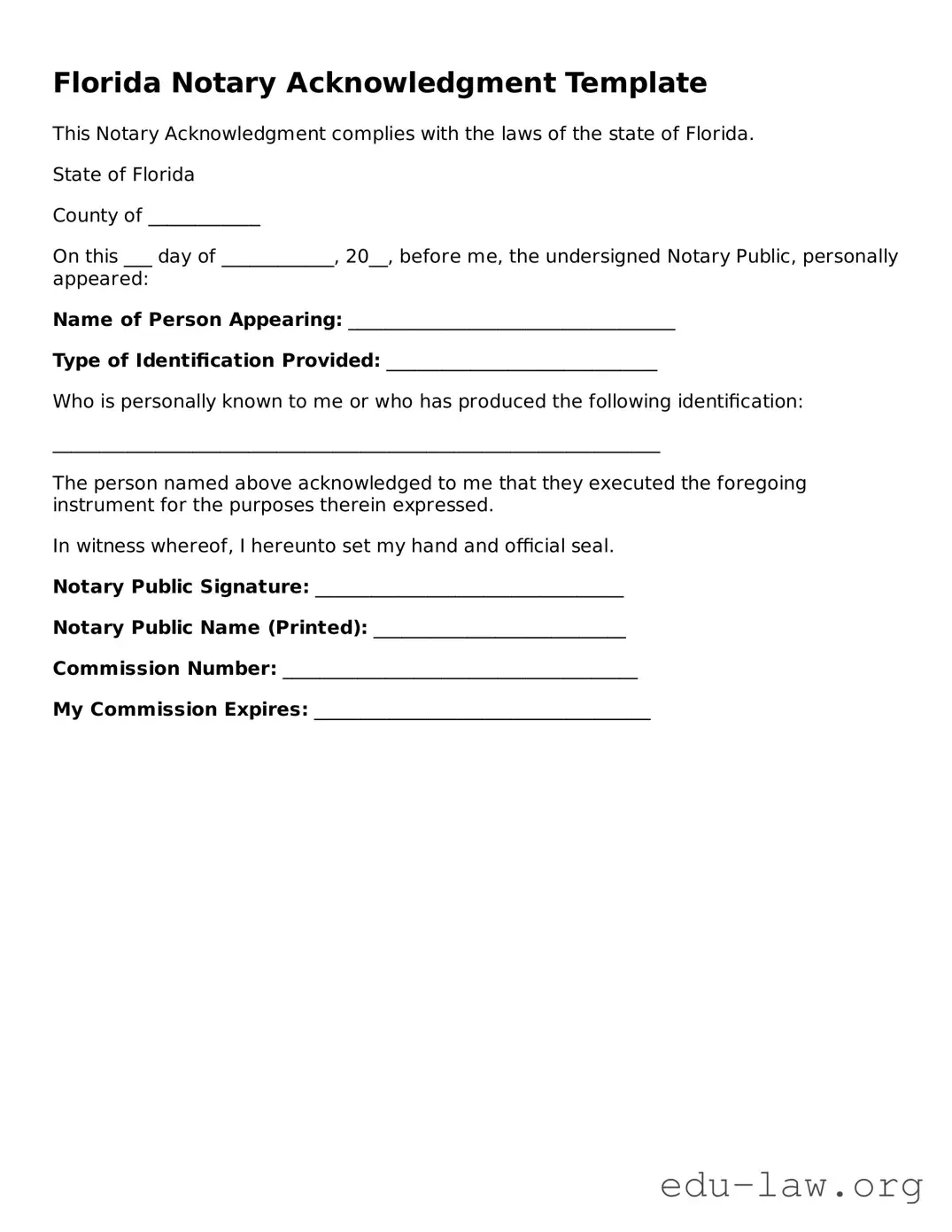Legal Notary Acknowledgement Template for Florida
The Florida Notary Acknowledgement form is a legal document used to confirm that a person signing a document is doing so voluntarily and is who they claim to be. This form is essential for establishing the authenticity of signatures, providing assurance in transactions such as property sales or contracts. Understanding its purpose and proper completion can help to facilitate smoother legal processes in the state of Florida.
